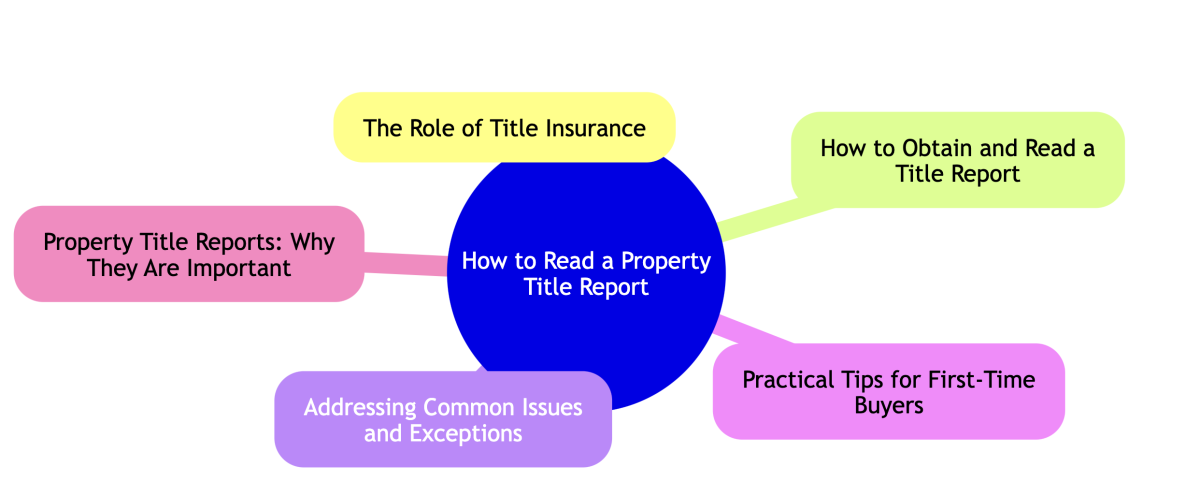Property Title Reports: Why They Are Important
Once a property title search is finished, it is time to read the property title report.
This will be a detailed record of the property's past ownership, liens, and any encumbrances or legal issues that might affect the title. All are very important for property transfer.
With this report, prospective buyers can verify the seller's right to sell the property and identify any potential legal or financial risks associated with the property's history.
Property title search company Title Search Direct has provided this guide to help educate anyone interested in the legal side of property title searches.
Key Takeaways
- A property title report verifies legal ownership and traces the property's history.
- Critical sections of the report include ownership details, legal descriptions, and liens.
- The report helps identify any legal or financial issues affecting the property transaction.
- Title insurance protects the buyer from potential defects not listed in the report.
- A title company typically provides title reports or attorneys during property transactions.

Understanding The Components of a Title Report
Owner of Record
The 'Owner of Record' section confirms the legal ownership of the property. It lists the current owner and any previous owners and provides a chain of ownership that helps confirm the seller's legitimacy.
Legal Description
The 'Legal Description' details the property's location and boundaries. It includes the lot number, subdivision, and precise property measurements.
This section reveals if the property matches the seller's description and for future disputes or legal claims.
Liens and Encumbrances
This section lists any debts or legal obligations attached to the property that could affect your ownership.
Liens could be from mortgage loans, unpaid property taxes, or other creditors.
Understanding these details is crucial to ensure that the property is free of any encumbrances that could be passed on to you as the new owner.
The Role of Title Insurance
Title insurance is an essential safeguard in real estate transactions, protecting both the buyer and the lender from unexpected claims against the property's title.
Here's how it works:
- Risk Protection: Title insurance shields you from past defects in the title, such as undisclosed heirs, forged documents, or recording errors.
- Security for Lenders and Buyers: It covers lenders against title disputes that affect the mortgage, while owner's insurance protects the buyer's interests.
- Types of Policies: Lender’s title insurance is typically required for a mortgage; owner's title insurance is optional but recommended to protect the buyer’s investment.
How to Obtain and Read a Title Report
Ordering a Title Report
To obtain a title report, follow these steps:
- Select a Title Company: Choose a reputable title company or attorney specializing in real estate to conduct a thorough title search.
- Submission of Details: Provide the property details to the title company, including the address and legal description.
- Review of Records: The title company will review public records to trace the property's ownership history and identify any discrepancies.
Analyzing the Title Report
Understanding a title report is critical to ensuring the property is free of legal encumbrances:
- Check Ownership History: Confirm the property’s ownership chain is clear and consistent.
- Identify Liens and Encumbrances: Look for any liens, outstanding debts, or legal claims against the property.
- Review Exceptions: Pay attention to any exceptions in the title insurance coverage, such as existing easements or zoning laws.

Addressing Common Issues and Exceptions
When reviewing a property title report, issues such as unpaid taxes or boundary disputes frequently arise.
Handling these requires careful attention:
- Unpaid Taxes: Always verify that all property taxes are up-to-date. Unpaid taxes can result in liens against the property, which you will inherit as the new owner.
- Boundary Disputes: Check the legal description and any associated plot maps in the title report to ensure the property boundaries are as described. Discrepancies can lead to legal disputes with neighbors.
Standard exceptions in a title insurance policy, such as pre-existing liens or zoning regulations, might not be covered.
Understanding these exceptions is crucial to avoid unexpected legal issues after purchase.
Practical Tips for First-Time Buyers
The property buying process can be daunting, especially for first-time buyers. Here are two essential tips:
- Seek Professional Guidance: Always consult with real estate agents and attorneys who can provide valuable advice and guide you through the complexities of property transactions.
- Understand Your Report: Make it a priority to understand every section of your property title report thoroughly. This knowledge will empower you to make informed decisions and avoid potential pitfalls.
Wrapping Up - Your Trusted Title Search Company
Understanding how to read a property title report is foundational for any real estate transaction. This guide aims to equip you with the knowledge to identify and address issues, ensuring a smooth process.
Title Search Direct is a reliable resource committed to supporting buyers through comprehensive title searches and clear, accessible reporting. Rely on professionals to safeguard your property investment journey and ensure peace of mind.
By mastering the details of property title reports and leveraging expert help when needed, buyers can confidently navigate the real estate market, backed by the support of trusted professionals like Title Search Direct.




